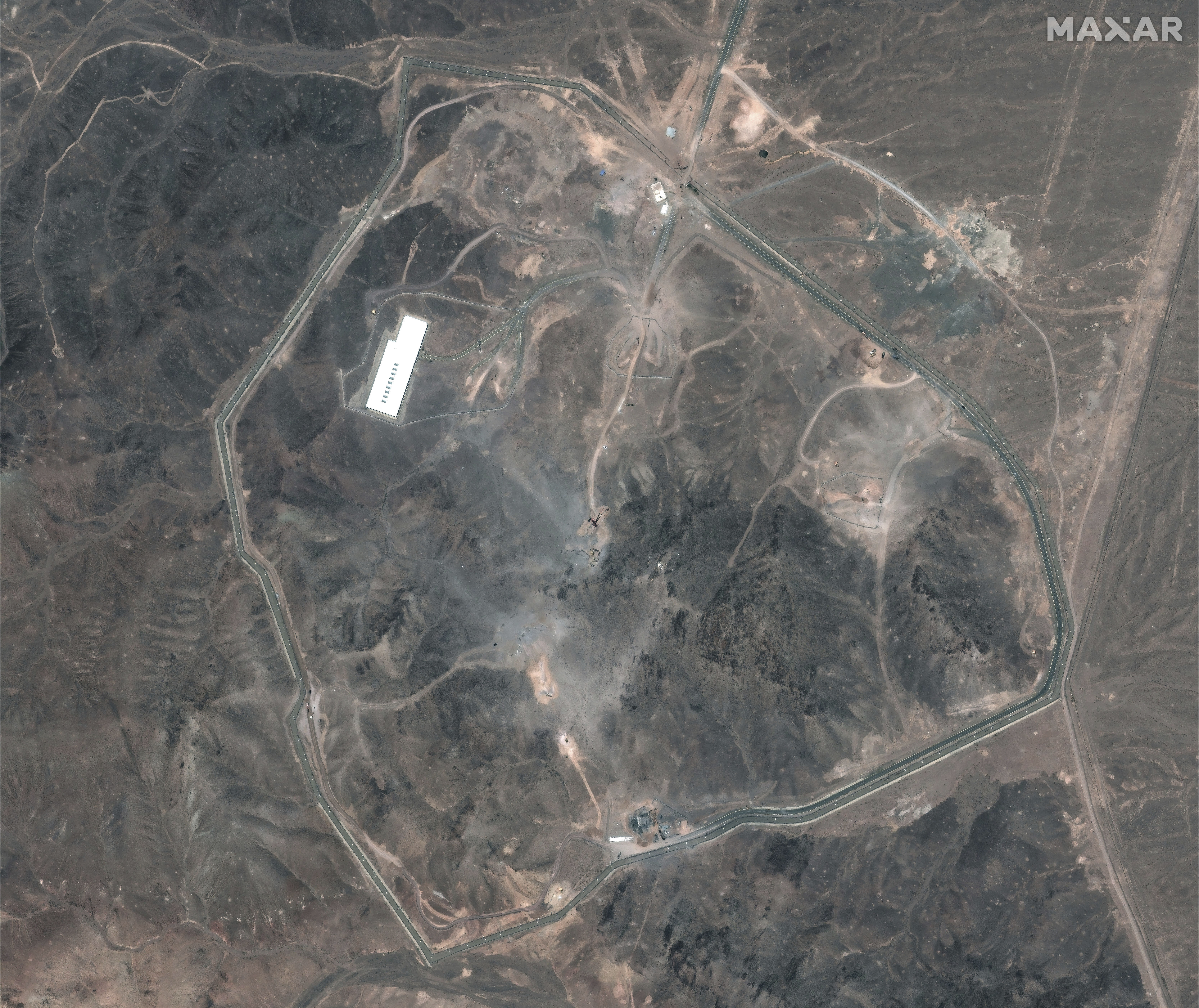
WASHINGTON/TEHERAN/UNITED NATIONS - The Pentagon said Wednesday that US strikes last month on three key Iranian nuclear facilities have set back Teheran's nuclear program by as much as two years.
"We have degraded their program by one to two years, at least intel assessments inside the department assess that," Sean Parnell, a Pentagon spokesperson, said at a news briefing, without providing further details.
"All of the intelligence that we've seen led us to believe that Iran's, those facilities especially, have been completely obliterated," Parnell added.
On June 22, US forces bombed the three Iranian nuclear facilities of Natanz, Fordow, and Isfahan.
ALSO READ: Trump says he would bomb Iran again if provoked
"No one exactly knows what has transpired in Fordow," Iranian Foreign Minister Seyed Abbas Araghchi told CBS News in an interview Tuesday. "What we know so far is that the facilities have been seriously and heavily damaged."
Iran's Atomic Energy Organization is assessing the damage, he added.
Iranian President Masoud Pezeshkian issued an order on Wednesday to enact a law suspending the country's cooperation with the International Atomic Energy Agency (IAEA).
The law calls for a suspension of cooperation with the IAEA until Iran's sovereignty, territorial integrity, and the safety of its nuclear facilities and scientists are fully guaranteed, said Constitutional Council Spokesman Hadi Tahan Nazif.
The law requires that any future inspections of Iran's nuclear sites by the IAEA need approval from the Supreme National Security Council.
In response, the IAEA said in a statement, "We are aware of these reports. The IAEA is awaiting further official information from Iran."
Speaking at a daily press briefing on Wednesday, Stephane Dujarric, chief spokesman for UN Secretary-General Antonio Guterres, expressed concern over Iran's decision, calling it "obviously concerning."
"The Secretary-General has been very consistent in his call for Iran to cooperate with the IAEA, and frankly, for all countries to work closely with the IAEA on nuclear issues," he said.
US State Department spokeswoman Tammy Bruce said Wednesday that Iran's suspension of cooperation with the IAEA is "unacceptable".
READ MORE: Iran's president issues order to suspend cooperation with IAEA
"We'll use the word unacceptable, that Iran chose to suspend cooperation with the IAEA at a time when it has a window of opportunity to reverse course and choose a path of peace and prosperity," Bruce told a briefing.
Iran must cooperate fully with the UN agency without further delay, she said.
Iran shuts central, west airspace
Iran on Wednesday announced the closure of its airspace in the country's central and western parts to international transit flights after having reopened it five days ago.
The decision was made following the approval of the Civil Aviation Organization of Iran and in view of the security and safety assessments under the country's present circumstances, spokesman of the Iranian Roads and Urban Development Ministry Majid Akhavan said in a statement.
He said that the suspension of domestic and foreign flights to and from airports in Iran's northern, southern and western parts was extended until 14:00 local time (1030 GMT) on Thursday.
He added the country's eastern airspace, which had been reopened on June 29 to domestic and international flights, would remain open.
Iran on Saturday reopened its airspace in central and western areas to international transit flights.
ALSO READ: IAEA chief: Iran's nuclear program could be operating again in months
The country closed its airspace on June 13 following Israeli airstrikes on Tehran and other areas. After a 12-day aerial conflict, the two countries achieved a ceasefire on June 24.
UN concerns over Iran's IAEA halt
Iran's decision to suspend cooperation with the IAEA is concerning, said a UN spokesman on Wednesday.
"We've seen the official decision, which is obviously concerning," said Stephane Dujarric, spokesman for UN Secretary-General Antonio Guterres, when asked for Guterres' reaction to Teheran's announcement to suspend cooperation with the IAEA.
Dujarric said the secretary-general has been consistent in his call for Iran's cooperation with the UN nuclear watchdog and for all countries' cooperation with the IAEA on nuclear issues.


